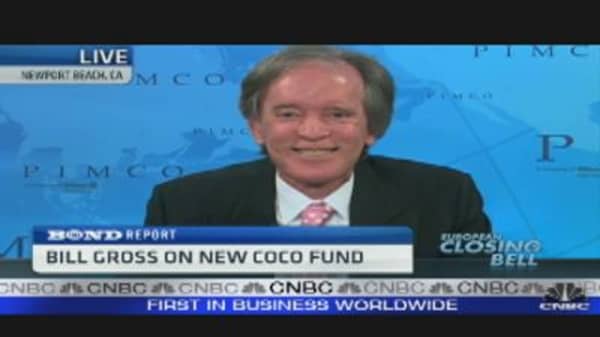Private debtholders, including euro zone banks, should accept a debt extension or other form of "soft default" to alleviate the debt burden for countries such as Greece if Europe wants a solution to the sovereign debt crisis, Bill Gross, Co-CIO of PIMCO told CNBC on Tuesday.
"We wouldn't go so far as to suggest that Greece or any other country leave the euro," Gross said. "What I think needs to be done....is for private debtholders and Euroland banks...to take a debt extension or some kind of soft default that alleviates the burden for these countries."
Gross admitted it was difficult to suggest that countries such as Germany, which have been more forthright and fiscally conservative, should help peripheral nations.
"But if they want a consolidated solution, that's really the way to go," he said.
"Countries like Greece and Ireland are subject to the euro currency and can't lower their high debt to GDP ratio by offering interest rates in the low to negative range such that a country can pay for its debt by real growth," Gross said.
That might have provided a solution, he said. "It's a rather surreptitious and sneaky way to do it, but it's quite effective."
Despite concerns that European banks have taken on too much risk and will not be able to withstand future shocks to the economy, Gross believes they are an attractive investment.
"Lloyds and Royal Bank of Scotland and Rabobank all have cocos (contingent convertible bonds) which provide yields of 300-400 basis points more than typical senior bank capital, and we think it's attractive. Admittedly there is a risk and if these banks move down to a certain equity as a percentage of capital level then the price has to be paid, but ultimately we think banks such as those are in the process of recapitalizing... and that going forward they will be much more careful in terms of riskiness," he said.
Bond investors needed to look for opportunities from the standpoint of currencies where real interest rates are high as opposed to low or negative, Gross said.
"We're looking currencies and bonds in those currencies which offer high real interest rates. Brazil does that at 6-7 percent real. Canada... basically offers a half to 1 percent higher real interest rate. Same thing for Mexico," he said.





